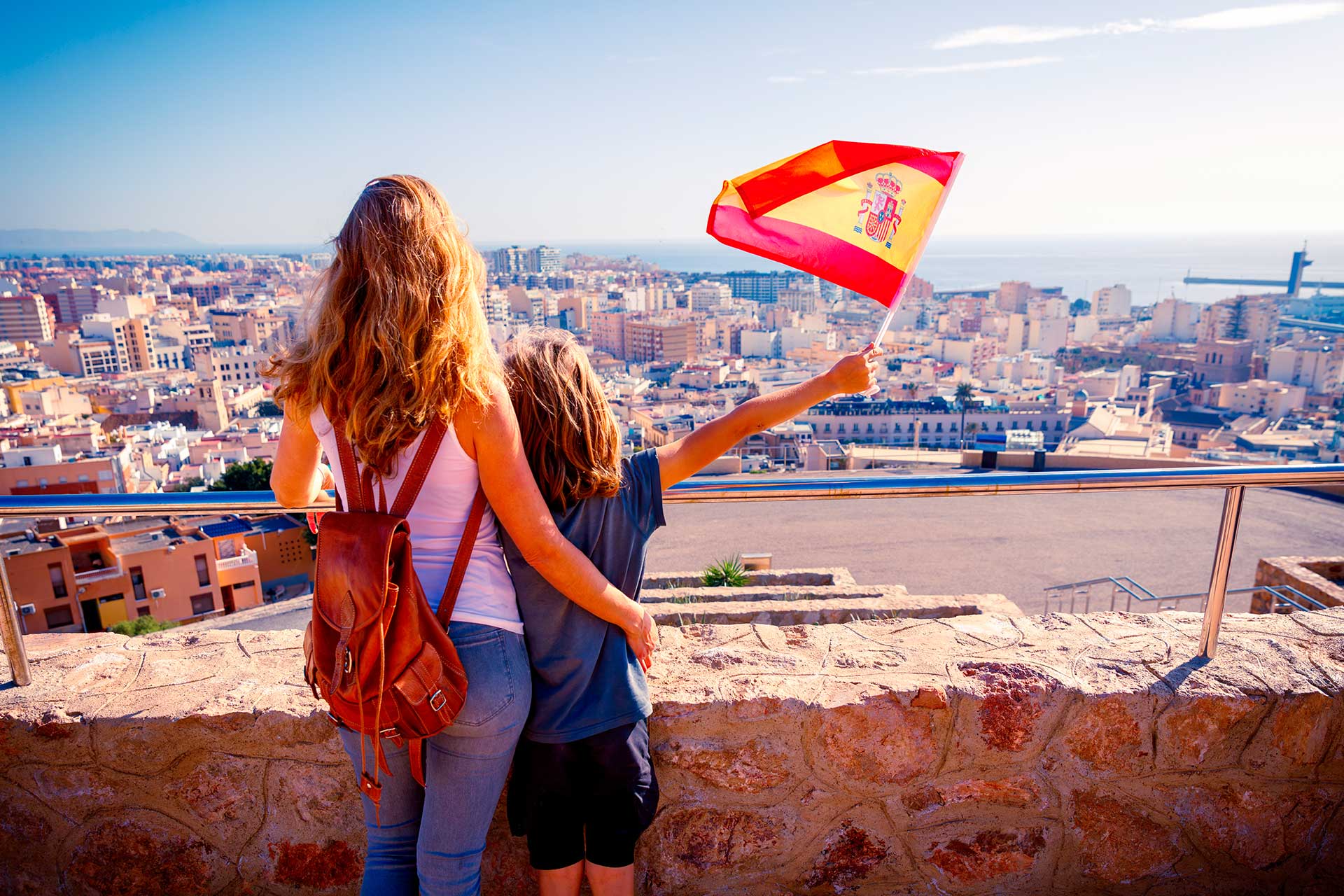Polish citizenship: how to apply for foreigners in 2026
Polish citizenship opens access to a large number of opportunities offered by the EU passport....

A residence permit in Spain is an official immigration status that allows legal stay in the country for more than 90 days. It is granted for a period of 1 to 5 years, depending on the grounds established by the Law on the Rights and Freedoms of Foreigners. This status provides access to healthcare, education, and banking services, and in some cases, the right to work or run a business. A residence permit is also the first step toward acquiring Spanish citizenship after 10 years of continuous residence.
A more convenient way to move to Spain is to obtain a passport from any of the European Union countries. A number of EU countries grant citizenship in a simplified procedure, without registration of residence permit, passing a language test and providing proof of income. You can get detailed information at a Relocation Compass free legal consultation.
A Spanish residence permit offers its holders numerous opportunities and privileges, making life in the country comfortable and promising. Let’s explore the main advantages:
The process of obtaining a residence card in Spain involves several key steps that must be completed to legally reside in the country. Let’s explore them in detail.
In Spain, a foreigner is issued an identity card in the form of a plastic card with personal data (including biometrics), a photo, basic information such as the expiration date and place of registration. The residence card is valid for the same period of time as the status itself and is usually renewable.
The residence permit in Spain is categorized according to the basis for its issuance. Two main types can be distinguished:
The basis for obtaining the status of a resident of Spain also depends on the list of rights received, the period of validity of the residence permit and the amount of the state fee. Popular ways of obtaining a residence permit are described below.
The right to reside in Spain for an unlimited period of time is available to passport holders from any of the European Union countries. Under accelerated procedures, it is possible to obtain a second EU citizenship within 4 to 14 months, depending on the country, with the support of Relocation Compass migration specialists. You can analyze the chances of quick and easy immigration to Europe at a free consultation.
To obtain residency in Spain, it is necessary to understand the conditions for granting the status according to different grounds, collect the required documents and properly execute the file, make an appointment at the diplomatic mission. In advance, it is necessary to take care of obtaining health insurance, as well as search and rent real estate.
Approval for a residence permit in Spain occurs when the following requirements are met:
Residency is granted if it does not go against national interests and does not pose a threat to the security of the state.
The list of documents depends on the basis on which the Spanish residence permit is requested. First, it is required to prepare documents for a visa. Certificates and statements issued abroad must be translated into the state language and notarized, if necessary – also apostille is required. The general list of documents is as follows:
The processing time of a request for Spanish residency is always standard. Migration services work quickly, so it usually takes up to a month to issue a visa, to approve a residence permit and produce a residence card – from 90 days. The cost of obtaining a residence permit may include not only the payment of state fees, but also associated costs, such as tuition fees at a university or the assistance of migration lawyers.
| Grounds for residence permit obtainment | Is suitable for | Price, € |
|---|---|---|
| WorkScientific researchSpecial activitiesStarting a business | Those, who can get employed in their area of specialization | Administrative fees from 100 |
| Investment | Investors, entrepreneurs | From 500 000 |
| Marriage or family reunion | Relatives and spouses of residents or citizens of the country | State fees from 100 |
| Financial solvency | For wealthy pensioners and other persons with a stable source of income | From 2400 per month + administrative fees payment |
| EducationInternshipAttendance of language courses | Those who wish to get education and a European diploma | State fees and tuition fees (e.g., a year in higher education institution costs on average from 6000) |
| Humanitarian circumstances | Those who have proof of inability to live in their home country | No fees |
When a foreigner resides in Spain for 183 days or more per calendar year, he or she becomes a tax resident. This requires the payment of taxes on income earned in any country in the world. Tax residency is also provided if the foreigner does not reside in Spain, but his/her main activity or economic interests are in Spain.
Before submitting a request for a residence permit in Spain, it is necessary to obtain a medical policy that is valid in the territory of the European Union and the Schengen zone. The document must cover the cost of 30 thousand euros, including standard and emergency medical care. The insurance shall be issued for the entire period of validity of the residence permit. The policy must have a printed form for submission to the diplomatic mission.
For a comfortable move to Spain, it is worth enrolling in language courses in advance or learning the basics on your own. Knowledge of Spanish will be needed later for naturalization and citizenship. The recommended level for everyday communication is B1.
Spanish diplomatic missions usually receive visitors only on certain days and after pre-registration. You can find the contact details for the consulate or embassy on the official website of the desired office. Registration is usually done by phone. It is recommended to apply for a visa at the nearest consulate/embassy.
The status of a resident of Spain is not issued to those who submit an incomplete dossier, provide forged documents, incomplete or false information about themselves. The request is rejected by decision of the state security service and law enforcement agencies, if the applicant is recognized as a persona non grata.
Those who have a criminal record, have previously violated the visa rules of the Schengen zone countries or have been banned from entering the countries of the association are also rejected. The decision can be challenged in court, but appeals are rarely won by foreigners.
You can eliminate the risk of being rejected when immigrating to Spain with the support of Relocation Compass specialized professionals. Migration lawyers select the best option for registration of status in the European Union and accompany you at every stage.
The residence permit can be renewed if there is still a reason to stay in Spain. The request for renewal of the residence permit must be made two months before its revocation. The application is submitted in person to the Ministry of Internal Affairs at the place of registration together with the documents. After 5 years after the issuance of the primary residence card, you can request a permanent residence permit. The permanent residence permit is issued by analogy with the residence permit.
Spanish citizenship in the general order of naturalization is issued 10 years after moving. For this purpose, one must be law-abiding and have no criminal background, renounce the existing passport, demonstrate integration into society, including successful completion of the integration exam – DELE.
Equal rights with the citizens of Spain also have those who have a passport of any other country of the European Union. It`s possible to find out more about acquiring a second EU citizenship in a short period of time and at minimal cost, by contacting Relocation Compass immigration specialists.
Spain’s residence permit (residencia) system is on the verge of significant changes, and additional regulations may come into effect by 2026. Here are the key points to keep in mind:
If you plan to apply for a residence permit in Spain, it is advisable to act under the current rules and consider submitting your application before the new regulations take effect — to take advantage of the existing, more favorable conditions.
Yes, some types of residence permit, such as investor visa (golden visa), visa without the right to work (residencia no lucrativa) or visa for freelancers (autónomo), can be arranged through the Spanish consulate in the country of residence. After obtaining the visa, you come to Spain to finalize the procedure and issue a residence card (TIE).
Yes, if you are absent from Spain for more than 6 consecutive months (or more than 10 months cumulatively over 5 years), your temporary residence permit can be revoked. For a long-term residence permit (residencia de larga duración), the limit is 12 months of absence outside the EU.
Yes, after graduation you can change your status to working without leaving Spain. This is possible after completing the program and receiving a job offer in your field of study. The change is also possible with a job-seeker visa (búsqueda de empleo) valid for up to 12 months.
Yes, but on condition of permanent residence in Spain. Even without the right to work (residencia no lucrativa) you accumulate legal residence. The main thing is to renew your residence permit annually and not to violate the conditions of residence (for example, the time of being out of the country).
Yes, from 2023 Spain has a special residence permit for digital nomads (visado para nómadas digitales). It is suitable for non-EU citizens working remotely for foreign companies. Proof of employment contract, income of 2,160 euros/month or more and higher education or work experience are required.
